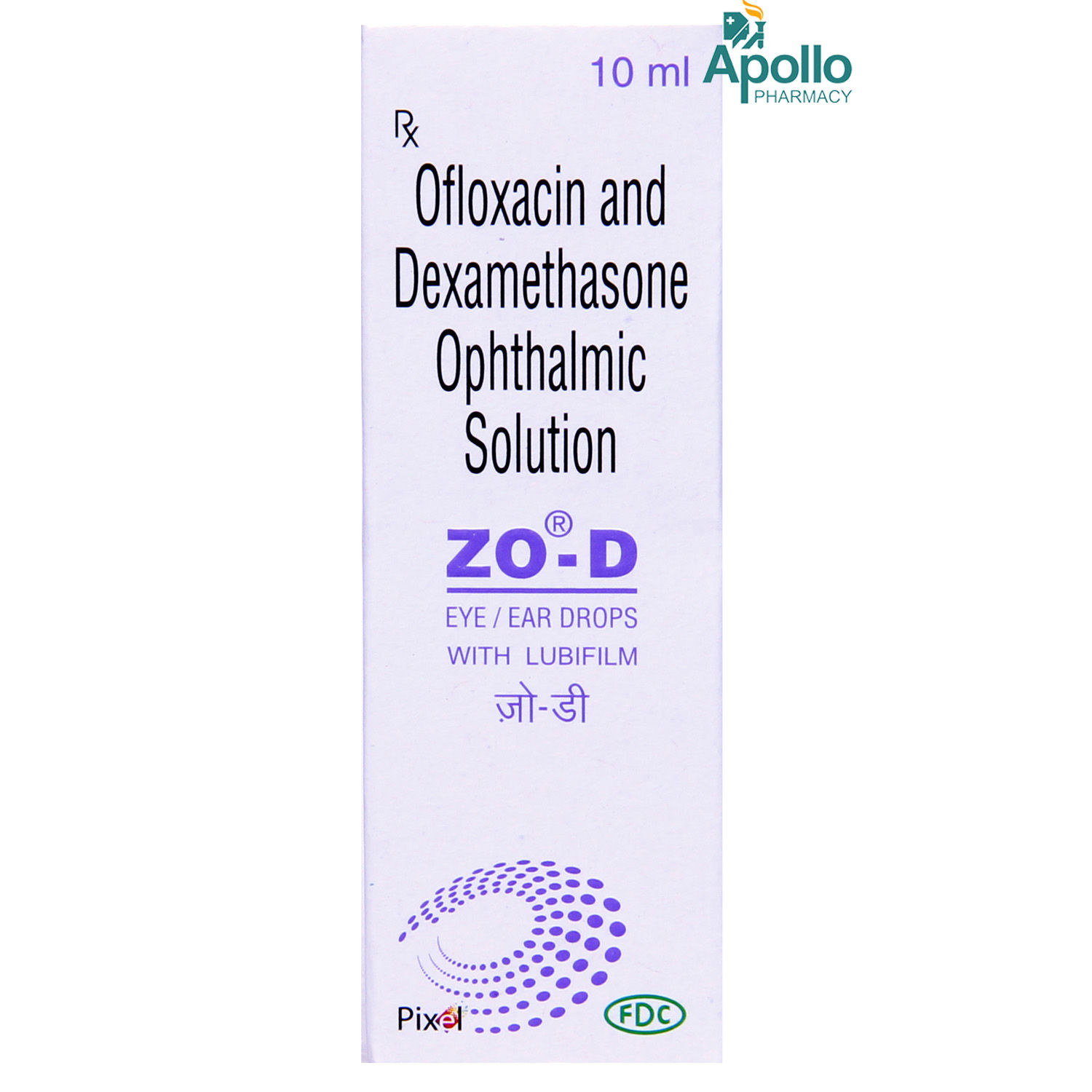Proxo Eye Drop
₹18*
MRP ₹20
10% off
₹17*
MRP ₹20
15% CB
₹3 cashback(15%)
Free Delivery
With Circle membership
(Inclusive of all Taxes)
This offer price is valid on orders above ₹800. Apply coupon PHARMA10/PHARMA18 (excluding restricted items)
Know Your Delivery Time
Provide Delivery Location

Whats That

Secure Payment

India's Most Trusted Pharmacy

Genuine Products
Composition :
Consume Type :
Return Policy :
About Proxo Eye Drop
Proxo Eye Drop is used to treat bacterial eye infections. Bacterial eye infection occurs when bacteria invade any part of the eyeball or its surrounding tissues, including the cornea (clear front surface of the eye) and the conjunctiva (thin membrane lining the outer eye and inner eyelids).
Proxo Eye Drop contains Dexamethasone and Ofloxacin. Dexamethasone belongs to the class of corticosteroids. It blocks the production of prostaglandins (chemical messengers) that make the affected area red, swollen, and itchy. Ofloxacin belongs to a class of drugs called quinolone antibiotics. It is bactericidal (kills bacteria) and works by inhibiting bacterial DNA gyrase, an enzyme required for the replication, transcription, and repair of the DNA.
Use Proxo Eye Drop in the dose and duration prescribed by your doctor based on your medical condition. Proxo Eye Drop is generally safe to use. However, some may experience side effects like eye discomfort, eye irritation, burning/stinging sensation, dryness, redness, and itching. Most of these side effects of Proxo Eye Drop do not require medical attention and gradually resolve over time. If these side effects persist longer, please consult your doctor.
If you are allergic to Proxo Eye Drop or any other medicines, please tell your doctor. Inform your doctor if you have any liver or kidney diseases, fungal infections, or heart problems before using Proxo Eye Drop. Pregnant and breastfeeding women should use Proxo Eye Drop with proper consultation and caution. Drive or operate machinery only when you do not experience any discomfort in the eyes after the usage of eye drops.
Uses of Proxo Eye Drop
Medicinal Benefits
Proxo Eye Drop contains Dexamethasone and Ofloxacin. Dexamethasone is a corticosteroid that blocks prostaglandins' production (chemical messengers) and makes the affected area red, swollen, and itchy. Ofloxacin is a quinolone antibiotic that inhibits bacterial DNA gyrase, an enzyme required for DNA replication, transcription, and repair. Thus Proxo Eye Drop treats bacterial eye infections.
Side Effects of Proxo Eye Drop
- Eye discomfort
- Eye irritation
- Burning/stinging sensation
- Dryness
- Redness
- Itching
Directions for Use
Storage
Drug Warnings
Brief your medical history to the doctor if you are allergic to Proxo Eye Drop or any of its components. Please let your doctor know if you have a history of liver or kidney diseases, heart problems, glaucoma, cataracts, recent eye surgery, viral diseases of the conjunctiva and cornea, severe nearsightedness, diabetes, or fungal infections of the eye. Please consult your doctor if you are pregnant, planning pregnancy or breastfeeding before using Proxo Eye Drop. Avoid driving or operating machines since the administration of Proxo Eye Drop cause blurred vision for a while after using. Proxo Eye Drop should be used for children only when advised by a doctor.
Therapeutic Class
Diet & Lifestyle Advise
- Manage stress, eat healthily, drink plenty of water, exercise regularly, and get plenty of sleep.
- Eat food rich in antioxidants such as berries, spinach, kidney beans, dark chocolate, etc.
- Know your allergy triggers, such as pollen, dust and other factors.
- Do not rub your eyes even though some ophthalmic drugs make your eye itchy.
- If you wear contact lenses: Clean and replace contact lenses more often. Never share contact lenses. Always remember to wash your hands before inserting and after removing the contact lens.
- Avoid staring at digital screens for longer durations. Rest your eyes every 20 minutes.
- Avoid or limit the intake of alcohol and caffeine.
Habit Forming
How Proxo Eye Drop Works
What if I have taken an overdose of Proxo Eye Drop
Alcohol
Caution
Limit alcohol consumption while on treatment with Proxo Eye Drop.
Pregnancy
Caution
There is limited data on how Proxo Eye Drop affects pregnancy. Please consult your doctor if you are pregnant or planning pregnancy before using Proxo Eye Drop.
Breast Feeding
Caution
It is not known if Proxo Eye Drop affects breastfeeding. Please consult your doctor before using Proxo Eye Drop if you are a breastfeeding mother.
Driving
Caution
Proxo Eye Drop may cause side effects like temporary blurred vision, affecting your driving ability. Hence, do not drive or operate machinery in such cases. Drive only when you are alert and have clear vision.
Liver
Caution
Let your doctor know if you have any history of liver diseases before starting treatment with Proxo Eye Drop.
Kidney
Caution
Let your doctor know if you have any history of kidney diseases before starting the treatment with Proxo Eye Drop.
Children
Caution
Proxo Eye Drop should be used for children only when recommended by a doctor.
Country of origin
Author Details
We provide you with authentic, trustworthy and relevant information
Proxo Eye Drop Substitute

Otodac DX Ear Drops 5 ml
by AYUR
₹16.92per tabletOxop D Eye Drops 10 ml
₹1.85per tabletZO D Eye Drop 10 ml
by AYUR
₹3.02per tabletOflokem-D Drops 10Ml
by AYUR
₹4.77per tabletZynoff Dx Eye Drops 5ml
by AYUR
₹13.86per tablet
FAQs
Disclaimer
Product Substitutes













